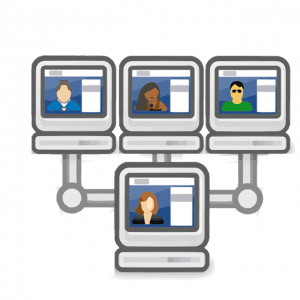“Beware the Ides of March.” The soothsayer in Shakespeare’s Julius Caesar could just as well have been foretelling the advancing coronavirus pandemic that swept the U.S. this March after ravaging China and parts of Europe, afflicting millions and killing more than 230,000 worldwide to date.
In only a matter of days, state and local stay-at-home orders in response to the pandemic led business as we know it to stop cold. Suddenly, all businesses with the exception of emergency healthcare, grocery markets, and a handful of essential industries had to swerve to a virtual model if they were able. Other businesses endured massive layoffs. The stunning number of workers filing for unemployment recently surpassed 26 million in the U.S. A Great Coronavirus Depression was born.
Some businesses, such as financial services, news outlets and some gig work have been able to smoothly transition to working from home offices. Others, such as those selling hard goods or providing athletic or wellness services, have been forced to develop new delivery models to keep customers engaged — and everyone safe.
Now that the economic lessons of the coronavirus pandemic are revealing themselves to U.S. workers, how can you use them to pandemic-proof your career into the future? Consider adopting these strategies:
1. Finding a niche where there is need. Get creative in both the type of service you offer and how customers access it. During the Alaska Gold Rush in 1896 to 1899, those who struck it rich were the people selling provisions to the deluge of miners. Keep that history in mind during times such as these. An entrepreneurial spirit can help see you through. Examples during the pandemic include how several overnight cottage industries have sprung up around providing protective masks. An asbestos abatement company sold several of its respirators to frontline healthcare workers. Beer crafters unable to sell their beer to restaurants began brewing hand sanitizer. And, instead of carrying passengers, ride-hail drivers are extending into delivering groceries, meals and packages.
2. Reaching out to customers and suppliers to offer solutions. Ask those who have been key to your own business how you can help them get through this crisis. Not only could it be crucial to your career that they remain in business, but they will appreciate any help you lend and cement their loyalty. For example, you could provide your technological skills to help a customer who owns a small concert venue transition to a subscription-based livestream performance model.
3. Upgrading your technology. In today’s world, technology allows many workers to be fully productive. In particular, video conferencing (think Zoom and Microsoft Teams) has replaced in-person meetings for the time being, and the capability lets teams collaborate and forge ahead. Document sharing (Dropbox, Sharepoint, etc.) also handily replaces any need for hard copy documents. Make sure you have the platforms you need to work out of your home. Additionally, you may need to invest in personal versions of industry-specific technology, such as graphics or product management software. It may be time to look into firewalls, backup systems, and adding memory to your home computer. A headset is a must to reduce ambient noise (from children also quarantining at home) during important teleconference meetings.
4. Investing in your home office. If you’ve set up a temporary home office at your dining room table, and your back is rebelling from the straight-backed chair, it’s time to make a change. An investment in a desk and chair that are ergonomically designed to make sitting — or standing — at your computer better for your body can help you stay productive without pain.
5. Building a client list across multiple industries. As the current pandemic has proven, having personal control over your professional location, contracts, and flexibility can determine whether your career will sink or survive. In normal times, many workers preferred the safety net of an established employer. But now, as companies are having to lay off employees, independent contractors and consultants have the capacity to extend themselves in new directions. For example, if you provide consulting services to develop educational curricula, you could now extend your services to offer training curricula for a variety of businesses. In this way, your clients span multiple industries and you are better protected.
6. Committing to network, both online and in person. For the time being, you’re confined to socially distant networking. But you can take full advantage of social networking platforms, keeping in mind that LinkedIn remains the go-to professional social network for professionals. Now is the time to refresh your profile. Interact with professionals in your target industry. Position yourself as an expert by answering questions from others in your field. Later, once we get the “all clear” to resume face-to-face interactions, engage in some old-school schmoozing. Make a point of meeting with anyone who may have an interest in or be able to promote your products or services.
The one silver lining to this pandemic may be that you become more versatile as either a telecommuter or an entrepreneur. In so doing, you will protect against falling victim to the next pandemic or the next economic crisis to unfold.
Originally published at Medium
Business & Finance Articles on Business 2 Community
(48)




